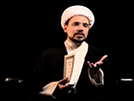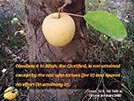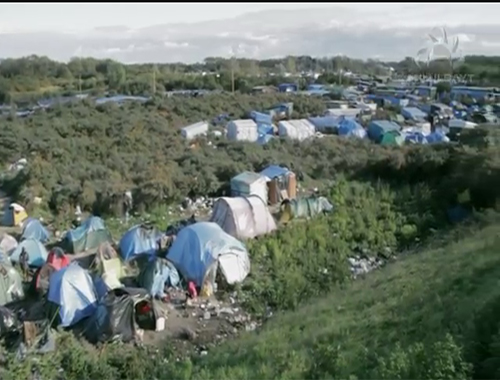2. Importance of Amr & Nahi
- Details
- Hits: 2108
2. Importance of Amr & Nahi
Amr bi ’l-marÅ«f & nahi ‘ani ’l-munkar is a moral and ethical safety-net for the Muslim community and the human society at large. It does not allow the Muslim community to abandon its members in the path of immorality and self-destructive path. Nor does it allow the Muslim ummah to be indifferent to the moral and ethical dilemma faced by humanity at large.
AllÄh says:
“There should be among you (O believers), a group (of the learned and sincere persons) who should call (the people) towards goodness, bid (them) to the good and forbid (them) from the evil—they are the successful people.” (3:104)
While describing the believers, AllÄh says:
“...The believing men and the believing women are helpers of each other: they bid the good, forbid the evil, establish the prayer, pay the alms, and they obey Allah and His Messenger—these are the people on whom Allah will be merciful. Indeed Allah is Powerful and Wise.” (9:71)
In the latter verse, while counting the positive qualities of the believers, Allah has placed amr bi ’l-ma‘rÅ«f and nahi ‘ani ’l-munkar before the salÄt and the zakÄt. Because it is with amr and nahi that salÄt, zakÄt and other good deeds will be promoted and practised in the Muslim community.
Imam ‘Ali bin Abi TÄlib (a.s.) said: “Verily the people before you perished because when they committed sins, the Rabbis and the Priests did not forbid them from it. And when the people became submerged into sins and the Rabbis and the Priests did not forbid them, then the chastisement came down upon them. Therefore, bid towards the good and forbid the evil; and know that bidding towards the good and forbidding from evil will not hasten your death or decrease your sustenance.” On the same lines, the Prophet of Islam (may peace be upon him) had said earlier that, “My followers will be in good condition as long as they bid (each other) towards the good, forbid (each other) from the evil, and co-operate with each other in good (deeds). If they do not do this, then the (heavenly) blessings will be lifted from them and some (evil ones) among them will be imposed over them (as a ruler). In that state, they will have no helper, neither on the earth nor in the heaven.”
Once a person from the tribe of Khath‘am came to the Prophet and asked him: “O the Messenger of God! Please inform me about the best [teaching] of Islam.”
The Prophet: “Believing in God.”
Khath‘ami: “Then what?”
The Prophet: “Maintaining [good] relations with the relatives.”
Khath‘ami: “Then what?”
The Prophet: “Bidding the good and forbidding the evil.”
Then the Khath‘ami asked, “And please also tell me what are the worst deeds in view of Allah?”
The Prophet: “Shirk: associating a person or a thing with Allah.”
Khath‘ami: “Then what?”
The Prophet: “Severing relations with the relatives.”
Khath‘ami: “Then what?”
The Prophet: “Promoting evil and forbidding the good.”
These ahÄdÄ«th from the Prophet and the Imam are sufficient to impress the importance of amr bi 'l-ma‘rÅ«f and nahi ‘ani 'l-munkar for the ethical and moral wellbeing of the Muslim ummah and humanity at large.











